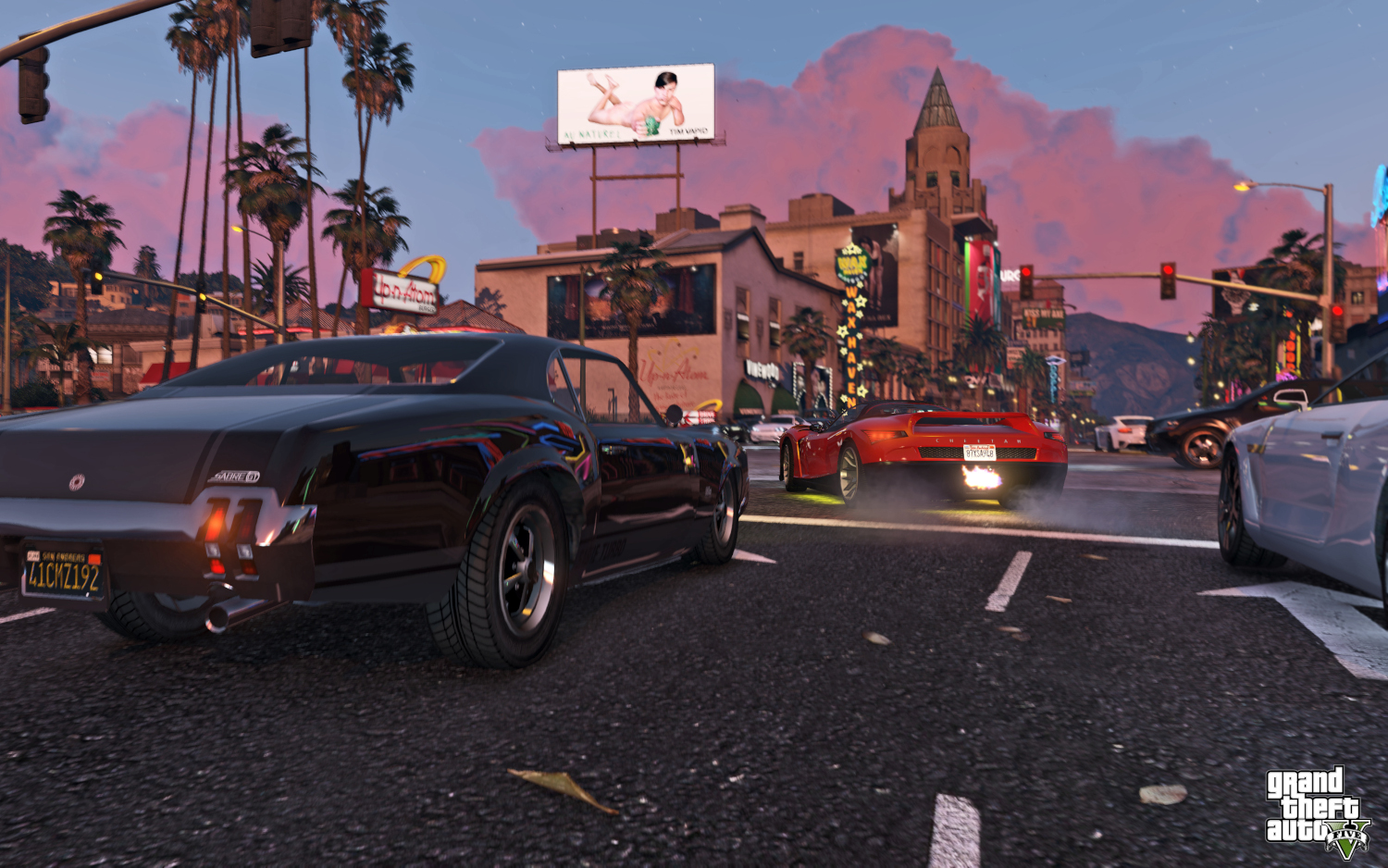Judge Shuts Down Grand Theft Auto Online Cheats
Video game companies aren't particularly fond of cheaters. Some don't care about modding their single-player games, which really only affects one person at a time, but it's hard to think of any that even tolerate cheating in their multiplayer games. Case in point: Grand Theft Auto publisher Take-Two Interactive's lawsuit against the Georgian David Zipperer, who made the Menyoo and Absolute cheats for Grand Theft Auto Online and Grand Theft Auto V. A judge's latest ruling calls for the end of distribution of these cheats.
According to a report from Reuters this week, U.S. District Judge Louis Stanton issued a preliminary injunction against Zipperer on August 16, which prevents him from legally distributing Menyoo and Absolute. Reuters said Take-Two claimed Zipperer had cost it $500,000 by distributing these cheats because they discouraged other people from playing the game.
Menyoo and Absolute come in two versions: a free one that only works in Grand Theft Auto V's single-player mode and a paid one that's also compatible with Grand Theft Auto Online. Both are referred to as "trainers," which enable the use of other in-game cheats. Someone could use them to spawn in specific vehicles and weapons, for example, including those which are only supposed to be available if you buy the appropriate DLC. Having the ability to spawn exclusive objects also directly affects Take-Two's cash flow. Why buy DLC if you can get its contents for free?
Companies seem to be more interested than ever in bringing cheat-makers to court. For example, Blizzard was awarded $8.7 million last April because it won a case against a German bot maker that helped people cheat at Overwatch and World of Warcraft. Banning individual cheaters is a lesson in futility--even when you ban hundreds of thousands of them at once. It's more efficient to go after whoever's making the cheats.
Get Tom's Hardware's best news and in-depth reviews, straight to your inbox.

Nathaniel Mott is a freelance news and features writer for Tom's Hardware US, covering breaking news, security, and the silliest aspects of the tech industry.
-
shrapnel_indie I definitely agree about getting cheats killed off in multiplayer. You have to wonder if cheaters have any skills at all if they rely on any kind of cheats. Yes... cheaters and those who enable them (cheat makers, and I'll extend to those who justify the cheats in multiplayer) are the lowlifes of the gaming world.Reply
As to the $500,000 lost in sales because the cheats drove away buyers/players (DLC, main game, in-game purchases where applicable)... methinks they might be using the same mechanism they use to calculate the cost of piracy in sales amounts. I have no doubt it is cutting into their bottom line, I just have to wonder about the numbers produced... how accurate they really are... how much padding may be in there to make the figures of damages look worse than reality. -
funguseater It's really too bad, Menyoo was loader for cars, buildings, new areas. Calling mods a cheat is just ignorance, mods are for most of us graphical improvements and game expansion, new characters and expanded choice. Replayability. But I guess the 12 yr old griefers ruin it for everyone.Reply
Also, I never play online, but this is going to affect all players on/off-line. No-one will mod with the fear of lawsuits, and no matter what you call it, a "loader" is needed to add anything in single player. -
Realist9 Now only if Dice and EA would take this stance, we could have a clean Battlefield game.Reply
Instead, we (on PC) have had nothing but cheat-fests in their games for years.
And no, I don't think BFV will be any different. -
shrapnel_indie Reply21240884 said:Now only if Dice and EA would take this stance, we could have a clean Battlefield game.
Instead, we (on PC) have had nothing but cheat-fests in their games for years.
And no, I don't think BFV will be any different.
CoD definitely needs it. It may have improved some, but the problem still exists on PC at least.
-
shrapnel_indie Reply21240858 said:It's really too bad, Menyoo was loader for cars, buildings, new areas. Calling mods a cheat is just ignorance, mods are for most of us graphical improvements and game expansion, new characters and expanded choice. Replayability. But I guess the 12 yr old griefers ruin it for everyone.
Mods can be good.... in single player. Mods in multiplayer, not so much, especially when it provides an unfair/unbalanced advantage.
Mods that modify game play in single player, no real issues... if it cheats, it only affects you.
The problem with mods in multiplayer has it where someone else may not have access. Also, please don't attach the "mods" name to cheats... aimbots, wall hacks, 1-shot, superman-armor type hacks are cheats, not mods.
and yeah... 12yo griefers don't help the situation any either.
-
Diji1 >it's hard to think of any that even tolerate cheatingReply
Blizzard seems to tolerate Overwatch cheating in Korea with their ridiculous licensing system for cafes. -
canadianvice Reply21241631 said:>it's hard to think of any that even tolerate cheating
Blizzard seems to tolerate Overwatch cheating in Korea with their ridiculous licensing system for cafes.
I was under the impression Blizzard had one of the single strictest cheat policies of any of the companies out there. The only other one I can think of right away that compares is a VAC ban.
